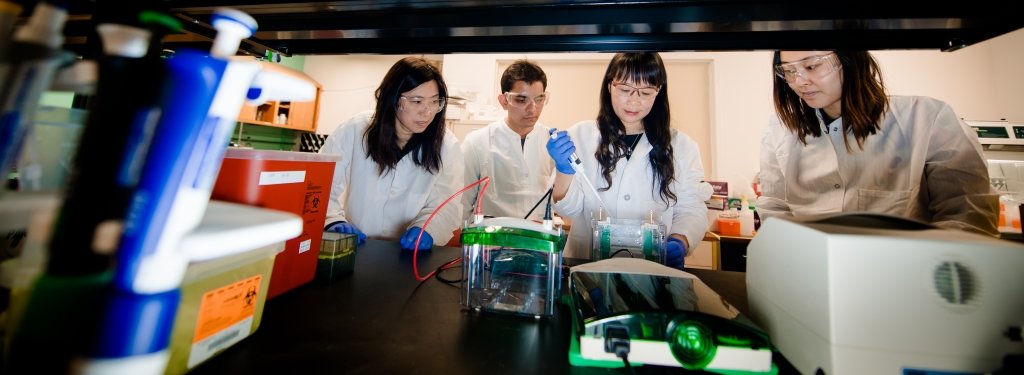In her guest blog, biomedical engineering (BME) major Pavitra Attanayake writes about helping to establish a peer mentoring program for first- and second-year BME students to improve overall student success and give back to the MTU community.
My freshman year at Michigan Tech was confusing, to say the least. As the first in my family to pursue an undergraduate degree in the United States, and the only one from my high school friend group to brave the U.P., I quickly realized that I had basically no idea what I was doing here. There were advisors, faculty and staff I could talk to, but in all honesty, I didn’t really want to go ask a professor to help me pick out what student organizations I should join or how to navigate dorm life.
Looking back, I think I did OK surviving my first year. Yet, so many instances were made unnecessarily difficult because I was trying to succeed at college while also trying to figure out what I was doing.
At the start of my third year at MTU, I got involved with the pre-health and Pavlis peer mentoring programs. Meeting students similar to myself, listening to them talk about their hopes and dreams, and helping them navigate the challenges of their college careers had me remembering the feeling of walking onto campus for the first time three years ago.
Knowing that I was helping someone else accomplish their goals and succeed during their time at Tech was fulfilling. Peer mentoring was a way to not only give back to the MTU community, it was a way to better overall student success. Being a peer mentor also made me realize that the BME department could benefit from this sort of support system for students.
BME has great advisors and faculty, but there were few opportunities for new students to network and connect with juniors and seniors. New students aren’t just first-years — they might also be transfer students, anyone who recently switched into a BME major, or just someone who needs the opportunity to meet a new friend.
My personal experiences and the fulfillment I felt as a peer mentor motivated the creation of the BME department’s Peer Mentoring Program. The first step was figuring out a backbone for the program. Using my experience as a peer mentor and consulting with students and faculty of the mentoring programs I had gotten involved with, I created a rough idea of the program that I presented to BME advisor Michael LaBeau. He was excited and very supportive of this idea and directed me to Smitha Rao, with whom I have worked to flesh out the program into a detailed and feasible idea.
Our goal is not to replace academic advising or to build a new learning center; this program is about creating intradepartmental connections on both a professional and social level. Whether it is sharing personal experiences and challenges, hearing a bit more about what it means to be a BME major, or even finding out about various opportunities and campus resources available to students, our peer mentoring program weaves threads between students traveling similar pathways.
Getting the opportunity to create and direct a program such as the BME Peer Mentoring Program has led me to learn not only the challenges of leading such an initiative, it has also allowed me the chance to learn much about myself. I came to Tech thinking I would do what it took to get my degree and walk out the doors quietly, which is what I had done up to that point in my life. I was never the kid who talked to teachers in class or was known by anyone outside my friend group.
Yet, realizing there was a larger problem I could solve, and working to solve it, has shown me that college isn’t just about getting a degree. It’s about finding the things you are passionate about and finding the courage to pursue them. My time at Michigan Tech has taught me that finding my voice and being unafraid to take chances — whether that’s simply going and talking to a professor about an idea or deciding to create and lead a departmental program — has the ability to start a whole web of change.
Michigan Technological University is an R1 public research university founded in 1885 in Houghton, and is home to nearly 7,500 students from more than 60 countries around the world. Consistently ranked among the best universities in the country for return on investment, Michigan's flagship technological university offers more than 185 undergraduate and graduate degree programs in science and technology, engineering, computing, forestry, business, health professions, humanities, mathematics, social sciences, and the arts. The rural campus is situated just miles from Lake Superior in Michigan's Upper Peninsula, offering year-round opportunities for outdoor adventure.






Comments